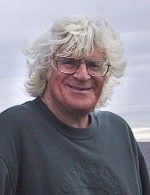Column Name
Title
Back in 2008, the BBC aired a reality show called Maestro, on which celebrities competed to be orchestral conductors. You can laugh at this, if you like, or wonder how it could ever relate to anything that happens at Juilliard, including any course I might teach as a member of the Graduate Studies faculty.
Body
But Maestro was far from a joke. Among the four people judging the celebrities were two top conductors, Simone Young and Roger Norrington. And their judging—which uncovered some surprising talent—dealt with serious things. When, for instance, a dance D.J. is told—on a show broadcast all over Britain—that his upbeats in a Mozart aria aren’t clear … well, classical music has entered a new era, one in which it opens its arms to the world, and in which your career can be what you want it to be.
You can play in a club. You can compose an orchestral piece with yourself as turntable soloist, and—like Juilliard graduate Mason Bates—become composer in residence with the Chicago Symphony. You can start a new kind of chamber orchestra, call it the Knights, and—like Juilliard graduates Eric and Colin Jacobsen—get your creation featured on public TV.
But to do these things, it helps to be entrepreneurial. You have to find your own path, your own support, and very likely your own audience. You’ll even hear people say that the old ways of making a career don’t work so well anymore, and so even if all you want is to play standard classical concerts, you’ll be better off if you know how to make your own way.
Which is why “entrepreneur” is a powerful word in classical music these days. Eastman, the New England Conservatory, and the Manhattan School of Music all have established special programs in musical entrepreneurship, as have other schools, including the University of South Carolina and the University of Colorado at Boulder.
And ideas are brewing at Juilliard. Which makes me happy to say that my two graduate courses—which I’ve been teaching here for years—fit right in.
My fall semester course, Music Criticism, might not seem to be entrepreneurial. And in fact we do read (and critique!) music critics, both from the present and the past. But the course ends up being about much more than criticism. Its real subject is how we talk about music, and how we can learn to do it better. Each week, I bring in some music—rock, Mozart, John Cage—and ask my students to describe what they hear.
This, my students have said, can help them in chamber music rehearsals. They’re better able to say what they think might not be going right. But they might be helped even more when they go out to promote themselves or their ensembles. How should they describe the music they make? All of us need to find words that bring to life—from the heart—the music we make, words that will inspire people to hear us.
And in my spring semester course, Breaking Barriers: Classical Music in an Age of Pop, entrepreneurship steps to the center of the stage. The official subject of the course is the future of classical music, which, I should note, has become my professional specialty.
I’ve unearthed data that’s not often seen, on the present state of classical music and how things got the way they are. Including a striking discovery—that the classical music audience wasn’t always old. Look at studies done in past generations, and you’ll meet an audience that was strikingly young, no older, in fact, than the population at large.
Why have things changed? In my course, I suggest that our culture changed, in dramatic ways, and that classical music didn’t keep up. Which then left most younger people no way to connect with it.
To bring them to us, we need new ideas, and that’s where entrepreneurship comes in. Classical musicians, especially young ones, can find their own new ideas, and then go out as musical entrepreneurs, and find their own audiences. Which, for Juilliard students, could mean an audience your own age. Here’s a dream of mine: Juilliard students go out as entrepreneurs, and, soon enough, some of you build a New York fan base, hundreds of people, who, just maybe, turn out for your concerts.
As you’ll see from my course Web site—gregsandow.com/popclass—the entire second half of the course, after spring break, is about entrepreneurship. We look at new initiatives in classical music, things others have done. We look for ways to find a young audience.
And then the students talk from the heart about music they love, and we take the first steps to turn those heartfelt words into a vivid, convincing—and honest—personal brand, finding words and visual images that, with any luck, will make others eager to hear them.
There’s entrepreneurship elsewhere at Juilliard—an entire course on it (The Musician as Entrepreneur), in fact, taught by Benjamin Sosland. Bärli Nugent offers hands-on entrepreneurial training in her seminar on career development. William Baker teaches about the business side of the performing arts. David Wallace’s The Arts in Education shows how to use music to reach out as a teaching artist. And don’t forget the Career Development Office, which offers help and mentoring for the entrepreneurial things you might do, even after you graduate.
Entrepreneurship is growing at Juilliard. It’s a new world, and I’m proud to be part of it.





